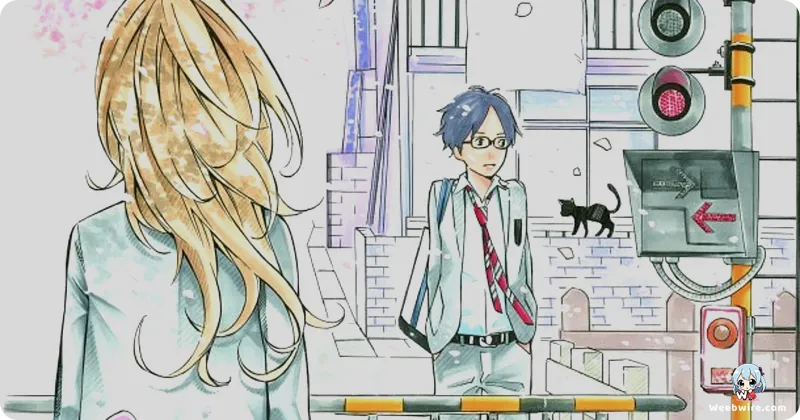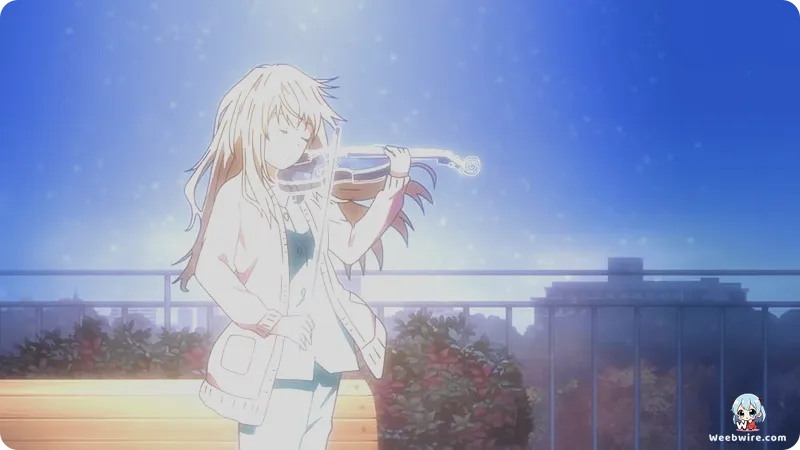Beyond the Melodies: Unearthing the Meticulous Production Secrets That Made 'Your Lie in April' a Masterpiece

Your Lie in April (Shigatsu wa Kimi no Uso) remains a significant achievement in contemporary anime, respected not only for its moving romance and drama but also for its strict commitment to the discipline of classical music. While the poignant story of Kousei Arima, the talented pianist immobilized by trauma, and the energetic violinist Kaori Miyazono is widely known, the deep technical and artistic decisions implemented by Studio A-1 Pictures often go unnoticed by casual viewers. These production insights reveal the immense effort required to transform a manga about performance genius and emotional recovery into a visually stunning and acoustically rich spectacle.
Technical Fidelity in Performance Animation
The animation of the musical pieces stands out as perhaps the most demanding technical accomplishment. Rejecting the common practice of simplified movements or static camera work often seen in music anime, the production team aimed for absolute accuracy. A combination of carefully rendered key animation and rotoscoping techniques was utilized to ensure the visual depiction of Kousei’s piano playing and Kaori’s violin bowing precisely matched the actual sheet music being performed. This required animators to deeply study professional musicians executing specific, complex repertoire, including challenging works like Chopin's Ballade No. 1 and Saint-Saëns' Introduction and Rondo Capriccioso. This study ensured the accurate capture of nuances in posture, fingering, and technique. This extraordinary level of synchronization highlights A-1 Pictures’ dedication to the source material’s central theme: the demanding reality of high-level classical performance.
Authenticity in Sound Design
Furthermore, the commitment to authenticity extended deeply into the soundscape. The recorded musical performances featured throughout the series were not merely synthesized or played by anonymous session musicians. Instead, the team recruited celebrated Japanese classical soloists, such as the acclaimed pianist Tomoki Sakata, to record the exact pieces heard on screen. This integration of professional artistry provides the soundtrack with unparalleled depth and emotional resonance, transforming the music from background accompaniment into a vital, dynamic character essential to the story’s unfolding drama.
Visual Symbolism and Color Theory
Visually, the series employs powerful, intentional symbolism. The contrast between Kousei’s early emotional state, rendered in subdued, cool, and often monochromatic hues reflecting his auditory blockage and depression, and Kaori’s introduction, characterized by explosive color, vibrant pastels, and intense light, serves as a crucial artistic metaphor.

This striking use of hyper-saturated color palettes during performances is more than aesthetic; it visually tracks Kaori’s success in restoring vitality and color to Kousei’s diminished world. As Kousei gradually overcomes his trauma and reconnects with his music, viewers observe a subtle yet profound warming and saturation return to his environment, a silent testament to his psychological recovery.
Grounded Realism and Narrative Layers
Even the foundational elements of the narrative are layered with meaning. The primary setting is faithfully modeled after specific, recognizable locations in Tokyo’s Nerima Ward. Extensive location scouting provided the anime with a sense of grounded realism, allowing fans to recognize and visit backdrops like the promenade along the Shakujii River. Moreover, the characters’ names carry subtle foreshadowing: Kousei Arima (公生) implies 'composition' or 'public life,' fitting his destiny, while Kaori Miyazono (かをり), meaning 'fragrance,' suggests ephemeral beauty, tragically mirroring her brief yet impactful existence.
Finally, the Japanese title, Shigatsu wa Kimi no Uso (April is Your Lie), is the ultimate piece of structural architecture. It references Kaori’s initial deception, that she loved Watari, which allowed her to enter Kousei’s life unburdened. It also marks the timeline from their meeting in April to the implied revelation and conclusion the following April. The enduring legacy of Your Lie in April is rooted in this fusion of technical mastery, deep symbolism, and a narrative structure as intricate as a concerto.
Credits
Your Lie in April (Shigatsu wa Kimi no Uso)
Author
Naoshi Arakawa
Cover Art
Naoshi Arakawa
Studio
A-1 Pictures
Publisher
Kodansha
Producers





